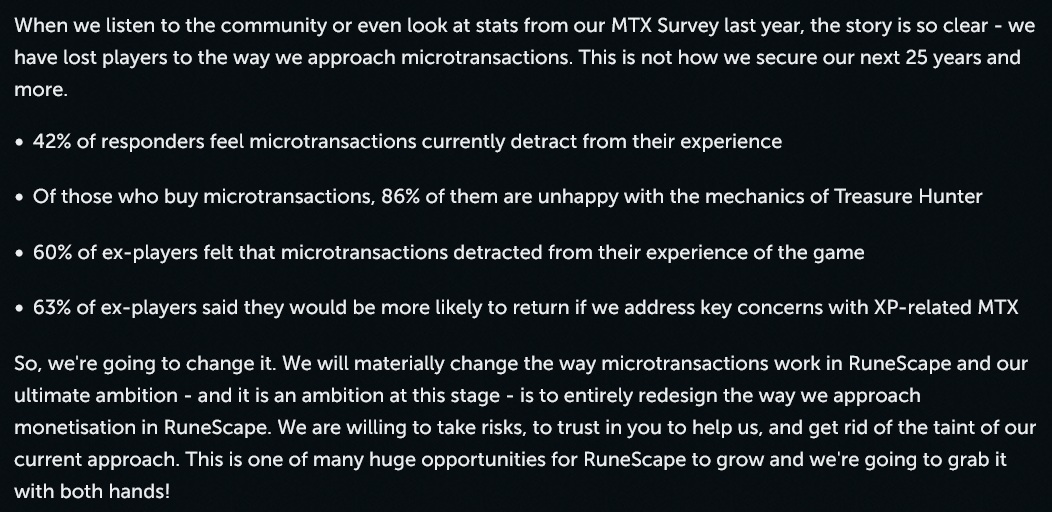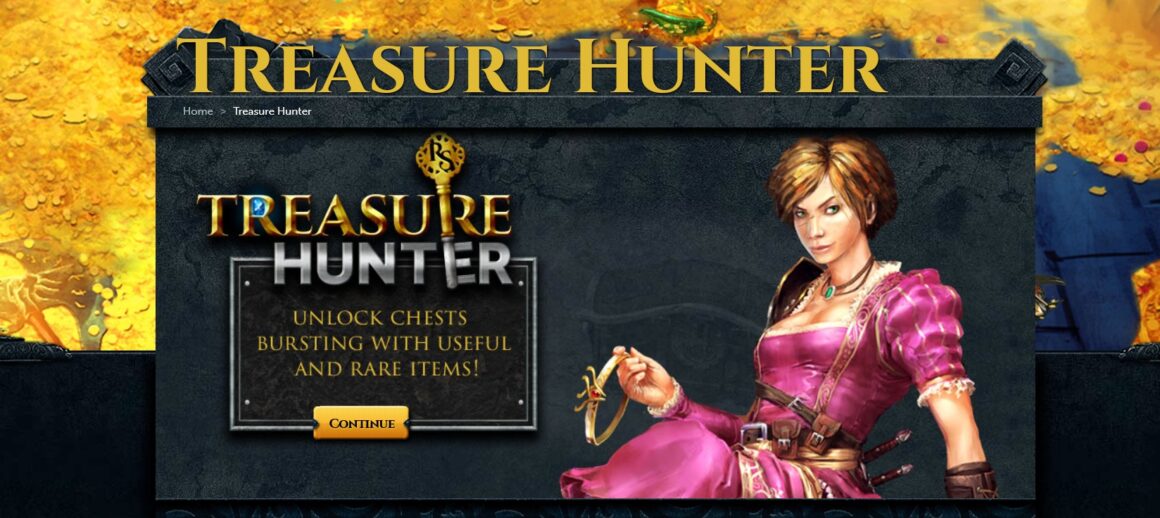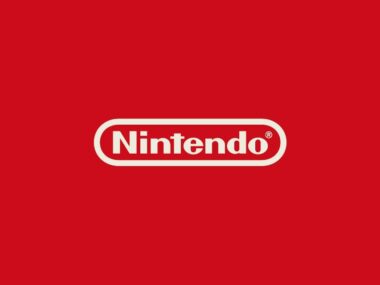A Turning Point for RuneScape
Jon Bellamy taking over as CEO of Jagex might be the best thing that’s happened to RuneScape in years. He didn’t just make changes for the sake of headlines. He looked at the facts. Players were frustrated with microtransactions. Subscription income was falling. When the numbers came in, it became clear that microtransactions weren’t as profitable as people assumed.

Instead of pretending everything was fine, he asked the community what they wanted. The answer was overwhelming: remove the microtransactions.
Jagex listened.
What Jagex Is Actually Doing
The studio put it to a player vote. A symbolic move (you could only vote yes) that said, “You get to decide what happens next.” Over 100,000 players responded within a day, making it clear the community wanted change.
Treasure Hunter loot boxes are being permanently removed, and over 220 pay-to-win items that allowed players to skip gameplay or buy progress will disappear with them. Players who already bought these items get an amnesty period to use them before they’re gone for good.
Only cosmetics and limited XP boosts will remain, and even those will be carefully designed to stay true to RuneScape’s identity. Items that break immersion? Gone.
Bellamy also announced an “integrity roadmap,” which focuses on improving UI, progression, and onboarding. Essentially fixing the foundation rather than just adding more content. It’s not just a monetization change. It’s a complete philosophical reset.
Why This Decision Matters
Bellamy didn’t rely on vague goodwill or PR promises. He made an economic argument. RuneScape’s microtransactions were hurting its subscription revenue. Losing subscribers meant losing trust, and trust is what keeps a live-service game alive.
Also, let’s be clear: with changes potentially coming to microtransactions in the EU, it’s wise to tackle this now. Bravo.
It’s rare to see a studio admit that monetization went too far, but Jagex did. They even acknowledged that this shift could hurt short-term profits. The bet is that happier players will stay longer, spend more consistently, and bring back the people who left.
That kind of transparency is unheard of in the modern games industry, where financial reports tend to matter more than player sentiment.
The Industry Context: Why Others Won’t Follow
As much as players are hoping this will spark a bigger movement, RuneScape’s situation is unique. It’s one of the few MMOs still built on a stable subscription base. Released in 2001, it has a fiercely loyal fanbase that’s stuck with it through thick and thin. Most modern games can’t say the same.
World of Warcraft and Final Fantasy XIV are the two major MMOs still maintaining subscriptions, and neither is likely to follow this path. Blizzard just added a new in-game currency called Heartsteal for housing items, and the company made millions from a single $90 mount. That mount alone reportedly earned almost as much as RuneScape did from all microtransactions in 2024.
Did it cost Blizzard some subscribers? Yes. I was one of them. But… with another expansion on the way, many will come back. The business model still works for them, and they know it.
Meanwhile, FFXIV has always been restrained with microtransactions. They’re mostly cosmetic, and many players even forget the shop exists. Games like Elder Scrolls Online, Guild Wars 2, and Star Wars: The Old Republic all rely on expansions or one-time purchases rather than subscriptions. Microtransactions are how they sustain ongoing development.
That’s the hard truth: these studios don’t have the luxury of cutting microtransactions without losing financial stability.
The Bigger Picture
I understand why players want this to start a movement. They want studios to remember what it means to respect their audience. Unfortunately, t’s not realistic to expect most companies to make the same decision Jagex did.
RuneScape could afford to make this change because it already had a steady base of paying subscribers. Free-to-play games or buy-to-play MMOs simply don’t. For them, microtransactions are not just profit. They’re survival.
The heart of the situation is simple: when players started canceling their subscriptions, Jagex listened. Losing subscribers means losing profit. That’s what finally got through to management. Bellamy’s decision wasn’t just moral. It was strategic.
We’ll have to wait and see whether subscription numbers rise again, but one thing is certain: RuneScape’s microtransactions aren’t vanishing completely. They’ll just be purely cosmetic and more in line with the game’s world.
What Players Can Learn From This
If players want microtransactions to disappear, there’s only one way to make it happen: stop buying them. That’s the only language companies understand.
While I’m impressed by Bellamy’s willingness to use data and empathy to make this decision, I don’t think this signals a broader industry shift. I wish it did because microtransactions have become excessive. The economic model keeps them alive.
Still, this decision matters. It shows that when a studio truly listens, real change can happen. Maybe that’s enough for now.






